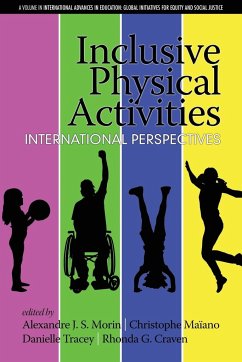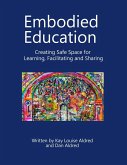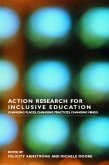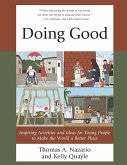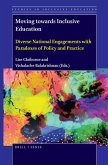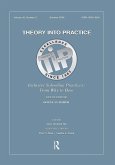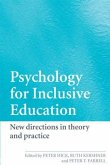Increasing numbers of children and adolescents internationally are being diagnosed with secondary health problems (e.g., overweight-obesity, diabetes, asthma, anxiety, etc.) due in part, or at least related to, a lack of physical activity. Children and adolescents with various forms of special needs (for example, children and adolescents with physical or intellectual disabilities, children and adolescents from disadvantaged social backgrounds and children and adolescents with chronic illnesses) seem to be particularly at risk for secondary health problems, which in the end limit their social participation and inclusion, as well as their ability to achieve their full potential and to lead happy and fulfilling lives. For these children and adolescents, involvement in regular physical activities (including fitness activities and sports) may have far reaching benefits. For instance, organized physical activities are known to represent an effective vehicle for interventions for children and adolescents with special needs who do not seem to benefit as much as others from more traditional, verbal-oriented approaches. Organized physical activities (in or out of school) further provide these children and adolescents with opportunities to interact in a positive manner with prosocial peers and adults who may serve as positive role models for them. There is currently a paucity of research about physical activities that effectively include children and adolescents with a range of special needs or research that identifies evidence-based strategies that seed success in maximizing the involvement in, and the positive biopsychosocial outcomes associated with, the practice of physical activity. This dearth of research is impeding progress in addressing the biopsychosocial disadvantage that these children and adolescents encounter, the development of new solutions for enabling full potential, and ensuring that children and adolescents with special needs not only succeed, but also flourish in life. This volume includes examples of theory, research, policy, and practice that will advance our understanding of how best to encourage these children and adolescents to participate regularly in physical activity, how to maximize the biopsychosocial benefits of involvement in physical activities, and how to ensure that these physical activities are inclusive for children and adolescents with special needs. The focus will be placed on research-derived physical activity practices that seed success for children and adolescents with special needs, and new directions in theory, research, and practice that have implications for enhancing physical activity practices with at-risk children and adolescents. The themes covered in this volume include: ¿ Strategies to maximise participation of children and adolescents with special needs in physical activity as a global priority; ¿ Strategies to maximise the social inclusion of children and adolescents with special needs in general physical activities; ¿ Effective physical education strategies to enhance biopsychosocial outcomes for children and adolescents with special needs; ¿ Advancing the practice of educators and coaches to cultivate the social inclusion and participation in physical activity of children and adolescents with special needs; and ¿ Challenging the meaning and implementation of inclusive practices in physical education globally.
Hinweis: Dieser Artikel kann nur an eine deutsche Lieferadresse ausgeliefert werden.
Hinweis: Dieser Artikel kann nur an eine deutsche Lieferadresse ausgeliefert werden.

